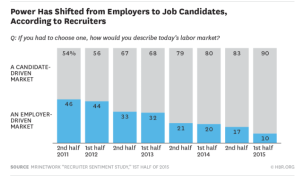BETA stands for Doesn’t Work, Will Break, Might Delete Everything. It’s become a more familiar term since Google labelled Gmail as a beta for years and Apple did the same with Siri. It’s familiar enough a term that people don’t understand it and that’s more than just a shame when it means you can end up losing your work.
The current iOS 9 and OS X betas from Apple are causing problems. The beta for watchOS 2.0 which drives Apple Watches is apparently driving those watches back to Apple as they become useless.
You can and I do think Apple shouldn’t have put out software in this state but that is what beta software is. When you’re first making an application, you clobber together bits and pieces until it sort of, kinda, a bit looks like one day it may work. That’s an alpha release and it’s where you see if the thing has any point and it’s the place you think, do you know, it’d be much better in yellow. Or blue. Purple and orange with spots.
Eventually you reach a point where someone says enough. You can’t change the colour any more. It’s time to get this out into the hands of people to try it.
That’s a beta. It’s software of a set colour being put out to be tried. It will break. It cannot fail but to break. The issue is over how badly. If you’re a developer, the intended audience for a beta, these crashing failures are just your day to day life. They are why there is a beta. A bit breaks, you fix it, next day you move on.
If you’re a user, it’s different. You’re using your computer or your phone to ring people up or to compute, you can’t afford to have a problem. Hence the warnings every software company gives you about how you shouldn’t try this beta on your main or primary computing device and how you should have a backup. It’s a warning to us but it’s not. It’s really a note to future litigators that the company did warn people.
Few folk pay attention to that warning and today that means some people are having to return their watches to Apple.
It’s bad and worse than it should’ve been, worse than it would’ve been if Apple hadn’t made this beta public. But betas are there to be tested and for the problems to be found. There is no better way of testing software that will be relied on by millions of people than to try it with millions. Hence the public beta and for all the problems current ones are causing people, we’re seeing more of it and we’re going to see still more.
It’s important to beta test. You just haven’t signed on to be the one who gets problems so don’t be the one who installs and runs this pre-release stuff.
By the way, alpha releases are followed by beta releases but betas are not followed by gammas. The one after a beta is known as the GM or Gold Master, it’s the version of the software that is ready to ship. It used to be that software was sold on shiny discs so the Gold Master would be sent to the pressing plant. Funny how terms continue long after what they describe is gone.
